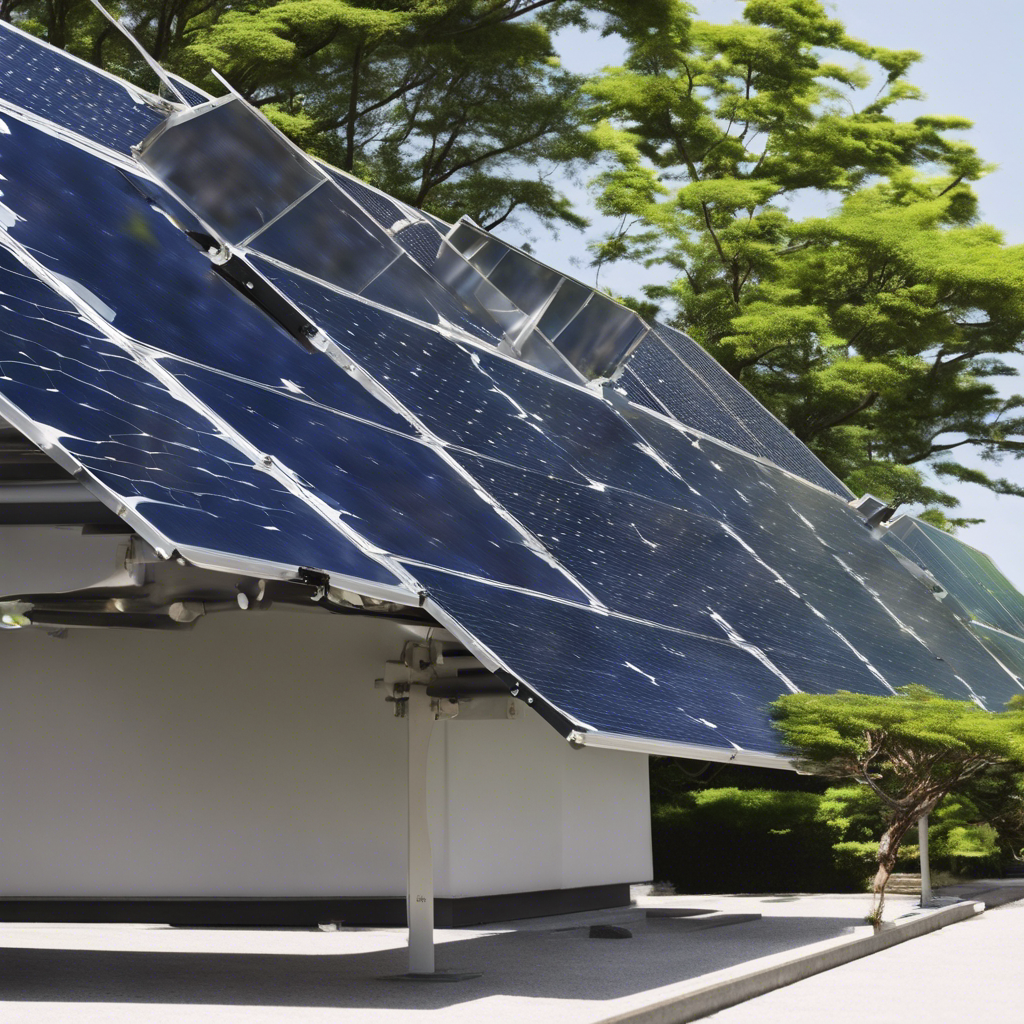Japanese Start-Up Aims to Challenge China’s Solar Panel Dominance with Innovative Perovskite Technology

EneCoat Technologies’ Thin-Flexible Film Could Revolutionize the Solar Industry
In a bid to challenge China’s stronghold on the global market for solar panels, a Japanese technology start-up, EneCoat Technologies, is developing a thin-flexible film that utilizes perovskite technology. This groundbreaking innovation has the potential to revolutionize the solar industry by offering light and flexible solar products that can be wrapped around curved surfaces and generate electricity even in low-light conditions. With Japan’s Prime Minister, Fumio Kishida, vowing to make perovskite technology commercially viable within two years and the nation allocating over $400 million to support production, the stage is set for a potential shift in the solar power landscape.
Perovskite’s Potential and Advancements in Technology
Perovskite, a crystalline structure that can convert light into electricity, has long held promise as a solar cell material. However, earlier research revealed that perovskite cells were less efficient than silicon and susceptible to moisture damage. Nonetheless, recent advancements in perovskite technology have addressed these limitations, enabling the creation of light and flexible solar products that can adapt to various surfaces and generate electricity even in low-light conditions, including indoor environments.
EneCoat Technologies’ Ambitious Plans
EneCoat Technologies, a start-up co-founded by a University of Kyoto professor, aims to commence commercial production of its thin-flexible film by the end of this year. By leveraging the unique properties of perovskite, EneCoat seeks to target markets where traditional silicon panels are not suitable. With the potential for curved surfaces and indoor applications, the company sees a significant untapped market for their innovative solar technology.
Overcoming Challenges and Extending Lifespan
One of the challenges associated with perovskite technology has been its vulnerability to moisture, which can degrade the crystals over time. To address this issue, Sekisui Chemical is developing a sealant that can protect perovskite cells for up to ten years. This breakthrough could significantly enhance the durability and lifespan of perovskite-based solar panels, making them more commercially viable and appealing to consumers.
China’s Dominance and Japan’s Quest for Leadership
China currently controls over 80% of the global supply chain for silicon solar panels, giving it a dominant position in the market. The country has invested over $50 billion in new photovoltaic capacity and created hundreds of thousands of manufacturing jobs since 2011. Japan, on the other hand, aims to regain its footing in the solar industry by leading the development and production of perovskite-based solar panels. While Japan had initially dominated in conventional solar panels, it was eventually surpassed by China, which utilized government support to ramp up production and reduce prices.
Conclusion:
As EneCoat Technologies and other Japanese companies push forward with the development of perovskite-based solar panels, the global solar industry could witness a significant transformation. The potential of perovskite technology to offer flexibility, adaptability, and enhanced efficiency opens up new possibilities for solar power generation. While Japan’s ambitious plans and substantial investments demonstrate its determination to challenge China’s dominance, only time will tell if perovskite technology can truly disrupt the established market and pave the way for a new era of solar energy.

